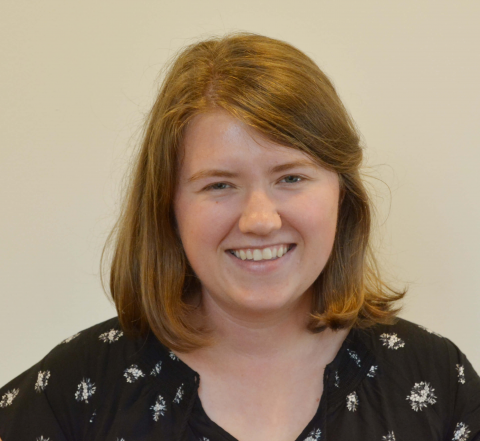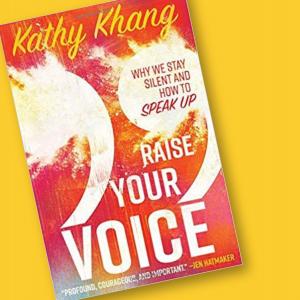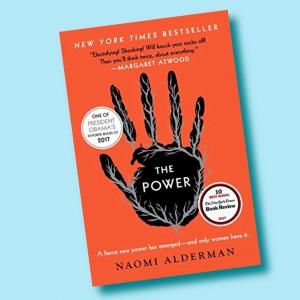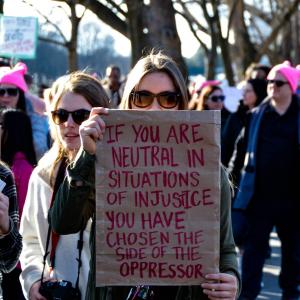
Katie Dubielak is currently the Executive Assistant at the True Colors Fund, a nonprofit working to end LGBTQ youth homelessness. Previously she spent a year living and working with the other members of cycle 34 of the Sojourners Internship Program. There she helped to plan The Summit, Sojourners’ annual gathering for social justice leaders, from both the administrative and programmatic lens. Katie received her Bachelor of Social Work from Loyola University Chicago, with a particular focus on public policy and nonprofit administration. She currently lives in the Adams Morgan neighborhood of D.C. with her plants and various books (okay it's actually Lanier Heights but no one knows where that is).
She is most interested in climate justice work, as well as issues affecting the LGBTQ+ community, and discovering more deeply how government and policy can be a true tool for justice. Katie is a member of various book clubs in D.C., both formal and informal, and likes reading books that are soon to be turned into movies and autobiographies by young women. She loves biking to work when the humidity allows, quietly stress knitting, and her favorite pastime is people watching in a local coffee shop. Her dream is to one day live where it snows year round.
Posts By This Author
Muted No More
'Raise Your Voice: Why We Stay Silent and How to Speak Up,' by Kathy Khang
I MET KATHY KHANG last summer. She joked about turning to Korean face masks and wine in her times of need; I immediately thought to myself that we’d really get along. Fortunately, her expertise in crafting both engaging conversation and knockout tweets (@mskathykhang) translates well into her latest book, Raise Your Voice: Why We Stay Silent and How to Speak Up.
Khang, who emigrated from Korea to the U.S. as a child, has worked in various settings, including newsrooms and university campus ministries. She brings her journalism and ministry experience to activism, recognizing that social justice always involves multiple intersections of race, gender, orientation, faith, politics, and more.
Raise Your Voice is an authentic diagnosis of, and antidote to, the deafening silence from many women and minorities in the workplace, politics, the world, and, most potently, in our spiritual and worship spaces. Khang crosses social, cultural, professional, and generational boundaries to create a tool useful to anyone who has ever felt either like they didn’t have a voice, or that their voice was taken from them.
A World Turned Upside Down
The Power, by Naomi Alderman. Little, Brown and Company
THE POWER IS THE fourth novel by Naomi Alderman, protégé of award-winning author Margaret Atwood (The Handmaid’s Tale). It centers on the discovery among the world’s women that they have a unique muscle, called a “skein,” embedded into their skin that when activated gives them an electric power that they can use to both hurt and heal.
The story is told through the narration of four protagonists—Tunde, Allie, Margot, and Roxy. Tunde is a journalist who provides the reader a global perspective on overturned social orders and flipped cultural norms through his travels. Allie gives us a glimpse into the religious order forming around women and lightning. Margot is the mayor of an undisclosed U.S. city and walks the reader through the governmental and political consequences of the power. Roxy’s involvement in organized crime affords the perspective of people leveraging a new social order for financial gain.
Alderman explores in depth the role reversals between men and women. Gender-based power structures and assumptions of the previous order do not last as more women discover the power within themselves. Alderman creates a world in which men are seen as less-than, echoing stereotypes that burden women in our world: “Men are dangerous ... Men are less intelligent, less diligent, less hard-working ... Men are more likely to suffer from diseases and they are a drain on the resources of the country.”
Does this novel depict a dystopia or a feminist utopia?
Marching a Second Time Taught Me the Power of Sustained Activism
The Women’s March in 2017 was one of the largest protests in history. Why is it that coworkers and friends who are active in social justice movements did not even realize that the march was taking place again this weekend? Why is it that I am still explaining why it was important for me to attend?
‘Lady Bird’ and the Call to Like One Another
As a woman who attended Catholic school for 16 years of her life, Lady Bird is possibly the most relatable movie of the year. Lady Bird could have added the subtitle “inspired by true events” and I would have asked myself which person from my hometown sold the rights to their life story to Greta Gerwig.
We Are Not Meant to Sojourn Alone
I was the first intern of Cycle 34 to arrive at the Sojourners intern house in Washington, D.C., in August. An incredibly generous staff member picked me up from the airport, drove me the hour back to the house, and left me to settle into my new home (later I learned that this type of generosity was just a part of the job at Sojourners, but that is another story altogether).
Honoring Salvadoran Martyrs, 28 Years Later
On Nov. 4, 2017, more than 2,000 high school and college students gathered in Washington, D.C., for the 20th annual Ignatian Family Teach-In for Justice (IFTJ). The IFTJ is a place for young people to learn, reflect, and advocate together, and to honor the legacy of those martyred in El Salvador.





